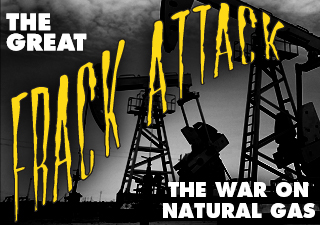Media

EPA Quietly Drops Flawed Fracking Study
With all of its enormous resources, the federal government’s capacity to influence exceeds even that of Hollywood and Madison Avenue. That is why it is so disconcerting when Washington abuses its power to persuade and such good news when one of its misdeeds misfires.
According to National Review Online, the U.S. Environmental Protection Agency (EPA) has backed away from a 2011 draft report that alleged that hydraulic fracturing fluids likely were the cause of contaminated water supplies in Pavillion, Wyo.
The report—released without peer review—generated alarming headlines in national media and contributed to frenzy around similar false allegations in places like Dimock, Pa, which were also proven unfounded. NRO reports the following:
The New York Times reported that ‘chemicals used to hydraulically fracture rocks in drilling for natural gas in a remote valley in central Wyoming are the likely cause of contaminated local water supplies, federal regulators said.’ The Financial Times ran a story headlined ‘EPA blames fracking for Wyoming pollution.’ National Public Radio announced that ‘for the first time, federal environmental regulators have made a direct link between the controversial drilling practice known as hydraulic fracturing and groundwater contamination.’ And the Salt Lake Tribune ran an editorial subtitled ‘EPA report shows water poisoned.’
In reality, the study conclusively proved no such thing. The research was fundamentally flawed, with the conclusion being derived less from science than from politics.
Wyoming state regulators expressed concern over the EPA report, which was found to be based on sloppy research methods that produced a small sample likely tainted by naturally occurring contaminants.
Unlike the Dimock debacle where the EPA confirmed the allegations of contaminated water were unfounded, the agency is choosing to merely drop the Wyoming study without completing the draft report. NRO says:
EPA reps said … that although the agency ‘stands behind its work and data,’ the study won’t be finalized, and the Obama administration won’t rest on the report’s conclusions.
That’s a nice talking point, but if the Pavillion study could actually stand up to scrutiny, you can bet the EPA would be using it to act—and to act boldly.
But in the end, it didn’t matter much whether fracking had actually contaminated Wyoming’s water; having the public think it did sufficed for the EPA. So go the cynical politics of an agency with an agenda.
Indeed.